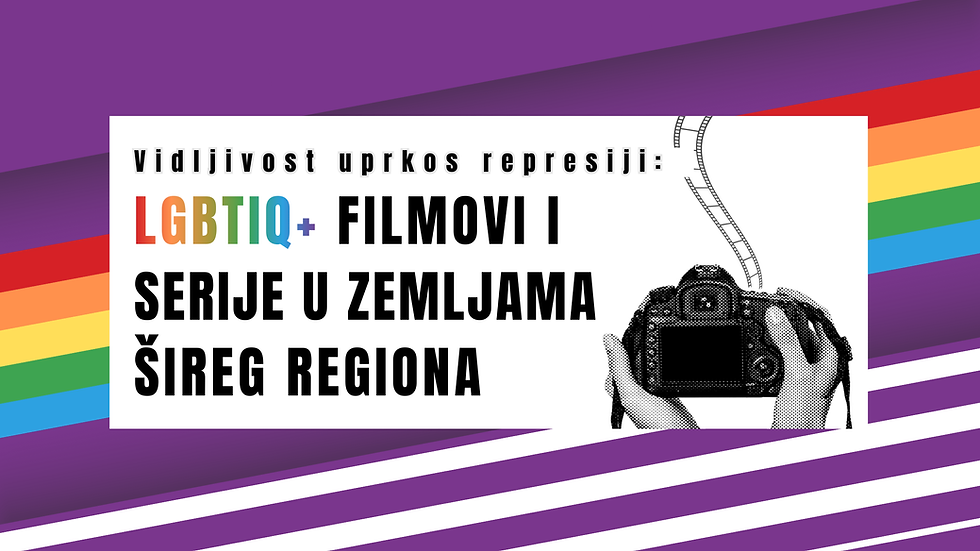Ask a Lawyer – TOC’s Legal Safe Space
- Sep 23, 2025
- 4 min read
Welcome to “Ask a Lawyer” – TOC’s legal safe space!
Here, there are no stupid questions, only honest answers.
Law often sounds dry and complicated, but behind every article and paragraph lies what truly matters – your rights and your safety.
In this diverse community, no one is alone, and the law can be an ally – it just needs to be “translated” into a language we can all understand.
First of all, thank you for your questions! There were surprisingly many, and I’m very happy to see so much interest. In this round, we’ll focus on questions related to family life.

What is the difference between LGBTI+ “partnership,” “union,” and “marriage”?
Essentially, there is none – it is simply the cohabitation of two people who also happen to be members of the LGBTI+ community. However, in a legal context, differences do exist, since rights and obligations depend on the legal definition of the union, which varies from country to country.
In short, a union or partnership – that is, a life partnership – is the decision of two people to live together long-term and shape their lives as a couple. Such a union exists regardless of whether it is legally recognized, and whether it is heterosexual or homosexual. In practice, terms without religious connotations (e.g., “partnership”) are often used instead of “marriage.”
In countries where same-sex unions are legally recognized, same-sex partners usually have the same or very similar rights as married couples, except that in most cases the right to adopt children is excluded.
In Bosnia and Herzegovina, we still don’t have a law regulating same-sex unions. Marriage is defined in family laws exclusively as a life union between a man and a woman, and from this definition arise all other family, property, inheritance, and related rights.
When will we have a law on same-sex marriage?
From a pragmatic perspective, this could be solved through simple amendments to all three family laws in BiH – by removing the phrase “a man and a woman” from the definitions of marriage and common-law marriage, as well as from all provisions explicitly mentioning the gender of spouses or partners.
Even if legalizing same-sex marriage itself were considered controversial (since marriage was historically first a religious, and only later a legal institution), such amendments could at least be applied to common-law unions, which in terms of rights and obligations are almost identical to marriage. The main resistance stems from the fear that this would open the way to same-sex parenting, which is still considered “unacceptable” by many.
As for same-sex unions in BiH: after years of advocacy from the NGO sector, on October 12, 2018, the Government of FBiH accepted the initiative to adopt a law on same-sex unions and committed to forming an interdepartmental working group. Only in January 2020 was the group appointed, and it was supposed to start working in April, but this was postponed due to the COVID-19 pandemic.
During this year’s Pride Month, the Government of FBiH appointed an expert group to draft the law, so it can be expected that the draft will be completed this year or next. It remains to be seen whether there will be enough political will for the law to pass the parliamentary procedure.
Can I regulate joint life with my partner through a contract instead of marriage?
In principle – yes. Certain rights can be regulated through a lifetime support contract or similar agreements, but these mostly concern property rights.
For inheritance rights, you can draft a will to ensure mutual inheritance. However, many rights enjoyed by married partners (such as hospital visitation, tax benefits, child adoption, etc.) cannot be regulated through contracts.
Can a gay man adopt a child in BiH?
Theoretically – yes, but only as an individual.
Unfortunately, same-sex couples cannot adopt a child, as their union is not legally recognized as a marriage or common-law marriage. Since adoption procedures examine all aspects of life, including family environment, a union with a same-sex partner would certainly not go unnoticed.
In conclusion…
I’m Amila, a legal advisor at TOC! I began working on human rights issues – especially LGBTI+ and women’s rights – during my studies, through activism. After graduating, I continued through independent research and work in both governmental and non-governmental sectors, so I am well familiar with procedures, advocacy, and implementation.
I’m here for all your legal questions – whether through IG polls, like this time, or via email: amila@toc.ba. I know it can sometimes be hard to ask a question or seek help, but keep in mind: I’m not here to judge – I’m here to help.
This article was published with the support of the Irish Department of Foreign Affairs and Trade. The content of the article is the sole responsibility of the author and does not necessarily reflect the views of the Tuzla Open Centre or the Irish Department of Foreign Affairs and Trade or the Irish Government.




Comments